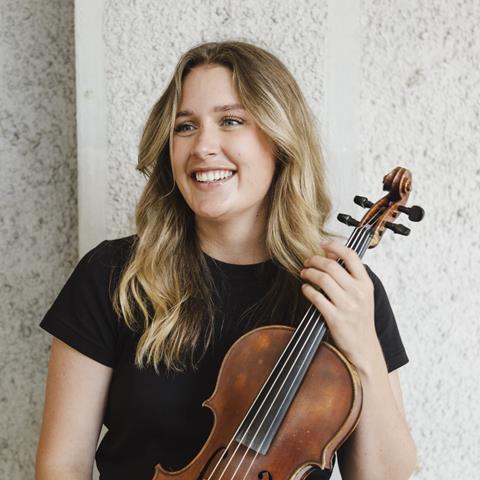’It helped me become a multifaceted musician, able to play so many different musical genres,’ says the violist

The Western Australian Academy of Performing Arts (WAAPA) loves getting young musicians, before university, to gain experience with WAAPA teachers and ensembles, so I was invited to play with its orchestra when I was in high school. When it came to deciding where to go, my gut feeling was definitely for WAAPA because of the environment and multiple artistic disciplines it offers.
As well as one-to-one lessons, we had string classes and performance classes, aural training, music theory, music history and composition, as well as classes on both classical and indigenous Australian music. We were involved in operas and musical theatre, which were some of my favourite parts of the course, as well as the symphonic programmes, chamber music, and playing Baroque music with my teacher, Paul Wright, who is a specialist.
Most of us would get there bright and early for our aural classes, then commune at the café. WAAPA operates 24 hours, so people were in and out of practice rooms from six in the morning until late at night. Perth is very suburban, so most people lived with their families or in houses with other students. And there’s a park nearby where we’d all sit together and have picnics.
WAAPA helped me become a multifaceted musician, able to play so many different musical genres. The performance experience ensured that I didn’t get too comfortable, and pushed me to be better. A highlight for me was the concerto competition in my final year. Being at the front of the stage rather than in the orchestral section really got me out of my comfort zone.
The other students become your fierce friends for life. I would really recommend WAAPA to musicians who want to branch out beyond classical performance and to pursue other interests. This is because WAAPA offers so many collaborations with dance, opera, acting, new music, musical theatre, improvisation and jazz. That environment was what sold me on WAAPA.
Subscribers to The Strad receive the 2024 Degrees supplement free with their copy of the May 2024 issue
Read: New quartet in residence at Western Australian music school
Read: String education in regional Western Australia: Sitting on a gold mine
The number one source for playing and teaching books, guides, CDs, calendars and back issues of the magazine.
In The Best of Technique you’ll discover the top playing tips of the world’s leading string players and teachers. It’s packed full of exercises for students, plus examples from the standard repertoire to show you how to integrate the technique into your playing.
The Strad’s Masterclass series brings together the finest string players with some of the greatest string works ever written. Always one of our most popular sections, Masterclass has been an invaluable aid to aspiring soloists, chamber musicians and string teachers since the 1990s.
American collector David L. Fulton amassed one of the 20th century’s finest collections of stringed instruments. This year’s calendar pays tribute to some of these priceless treasures, including Yehudi Menuhin’s celebrated ‘Lord Wilton’ Guarneri, the Carlo Bergonzi once played by Fritz Kreisler, and four instruments by Antonio Stradivari.













































No comments yet